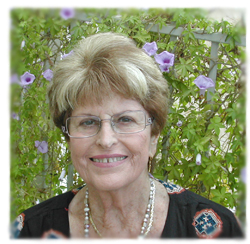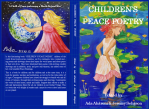Peace: From Theory to Practice
Posted: 2015/05/22 Filed under: Articles, Peace Education | Tags: Free Pen 1 CommentText: Solveig Hansen
How do you put the theory of peace into practice? This is the question FREE PEN asks in the article below.
IFLAC members show how this can be done through words. Among our members we find poets, writers and musicians. Each in their own individual way, they promote peace. Just to give you a few examples from IFLAC Latin America, our most active branch:
Among their individual achievements are Elías Galati’s poetry contest for children (Argentina), and Joseph Berolo’s Naciones Unidas de las Letras (Columbia). The leading ladies of IFLAC in Latin America, María Cristina Azcona and Susana Roberts, are writers and poets. Héctor José Corredor Cuervo (Columbia) wrote Constructores de Paz (Builders of Peace), that has become the IFLAC hymn in Latin America, sung by Henry Angarita. Listen to it while you continue reading:
In this article, FREE PEN outlines the principles of peace education and introduces IFLAC as an educational concept for furthering peace through literature and art.
IFLAC, from theory to the practice of peace
By FREE PEN, 2015
Practice together the peace does not mean to transmit made solutions, but continue a participatory and shared commitment to peace based on a collaborative learning process.
An education by “workable peace” of three elements:
- The transfer of skills on peace: the causes of peace and conflict, awareness of its capabilities and possibilities, principles and presuppositions of social and international peace.
- The acquisition and dissemination capacity to act peacefully: the ability to find solutions and to manage conflicts individually, developing personal strength and self-confidence.
- Learning and preparation for peaceful political and autonomous action: influence decisions and political developments in local, state or international, transnational action capabilities.
The necessity of confronting the phenomena related to conflict and violence. The pedagogy of peace should refer to conflict of critical reflection on national myths to the development of injuries due to violence and conflict, to overcome prejudice and create enemies, the development of tolerance and inter-cultural skills (especially in situations etnico-political conflicts). In addition to teaching peace is linked to democratic participation, analysis and use of new media capabilities.
The fundamental principles of peace education: the link between micro and macro systems, holistic approach, the ability to know how to change points of view, the differentiation between the various concepts of peace, a critical idea of violence, the ability to think with alternatives, ability to self-reflection, developing visions and perspectives for the future, non-violence, a long-term perspective, an ability to put into perspective depending on the context and situation, consistency between the means, methods and objectives.
Consideration practices “IFLAC” as an educational concept. For example, IFLAC is a concept that has developed in recent years, particularly in projects of peace through literature and art. This concept refers to an education able to overcome national interests, understand the overall social developments and policies, develop teaching skills.
The new objectives are to provide a global vision to develop the individual to be aware of the influence of distant events and finally the destruction of stereotypes and prejudices. IFLAC aims to develop a participatory learning process intended to last a lifetime.
An important part of education for peace based on international security and civil coexistence. The acquisition of new languages and new social skills more appropriate to the globalized world are also part of IFLAC.
In specific sections dedicated to the violence, conflict and peace, IFLAC will present teaching tools and reflection to approach the study of the causes that lead to escalation of the conflict and violence. Each section is divided into two parts: knowledge and methodical and didactic reflections.
The part dedicated to knowledge has the purpose of introducing the theme. The second aims to raise awareness and contribute to the development of a critical vision. In the second part, IFLAC also presents tips for courses in schools using the proposed learning materials.
Having demonstrated the importance of theater, poetry, literature and music as means of expression and reconciliation, IFLAC offers several kinds of “good practice” internationally.



 IFLAC Latin America
IFLAC Latin America IFLAC Hungary
IFLAC Hungary IFLAC Romania
IFLAC Romania IFLAC Spain
IFLAC Spain IFLAC in Hebrew
IFLAC in Hebrew IFLAC Japan
IFLAC Japan IFLAC Canada
IFLAC Canada IFLAC Pakistan – Yahoo group
IFLAC Pakistan – Yahoo group


